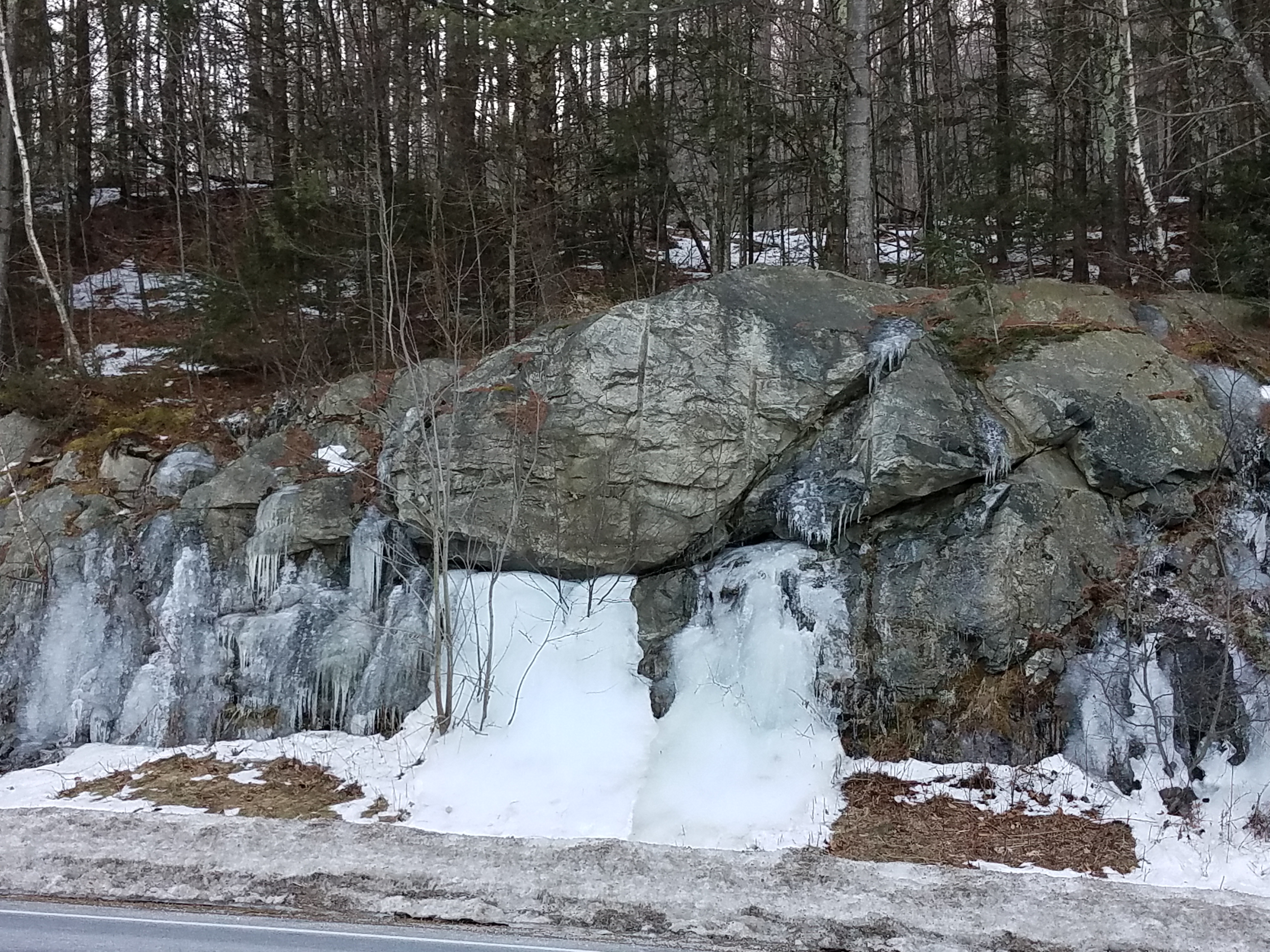Groundwater
Monitoring groundwater levels, regulating water wells and water use, and preventing contamination.
 Groundwater is the water below the surface of the land that is replenished by rain and melting snow seeping into the ground. Groundwater fills the innumerable small spaces that make up the materials, such as sand and gravel, that lie on top of bedrock; or it occupies openings formed by fractures in the mostly solid bedrock.
Groundwater is the water below the surface of the land that is replenished by rain and melting snow seeping into the ground. Groundwater fills the innumerable small spaces that make up the materials, such as sand and gravel, that lie on top of bedrock; or it occupies openings formed by fractures in the mostly solid bedrock.
In order to be able to pump significant quantities of groundwater out of either the land above the bedrock or the bedrock itself, the pores and fractures must be well connected so that groundwater can easily flow into and through them. An “aquifer” is said to exist wherever pumping of groundwater can be sustained over time without drastically depleting the supply.
Groundwater levels in a statewide network of wells are monitored year-round by the New Hampshire Geological Survey (NHGS) with the assistance of cooperating partners and trained citizen volunteers. This information is critical to decision-making by the state’s interagency Drought Management Team, among others.
Sixty percent of New Hampshire’s residents are dependent on groundwater for their drinking water supplies. New Hampshire’s Groundwater Protection Act, passed in 1991, authorizes NHDES to regulate large groundwater withdrawals and commercial discharges of wastewater; establishes best management practices that must be employed by activities that are considered potential contamination sources; creates four classes of groundwater; establishes groundwater quality standards; and enables local entities, such as water suppliers and town boards, to play a role in actively managing activities having the potential to contaminate valuable groundwater.
Groundwater Monitoring in New Hampshire
Groundwater levels in a statewide network of wells have been monitored for decades. Measurements are made manually at least once per month in each well, and 20 of the wells are equipped with sensors that record water levels on an hourly basis. NHGS subjects the data to strict quality control to ensure its accuracy.
Each well serves as an indicator of regional hydrologic conditions, registering changes in the amount of water stored in known aquifers. This information can help to detect the beginning of a drought and track its severity as conditions worsen or improve. Increased water demands due to population growth, coupled with increased areas of impervious surfaces that limit groundwater recharge in some communities, raise concerns about the future availability and quality of groundwater resources.
Continued monitoring and protection of New Hampshire’s invaluable aquifers are essential to sustain the vitality of the state’s economy and the well-being of its citizens.
Both hand-level and hourly logger data are accessible to the public through the National Ground-Water Monitoring Network online data portal. This portal is a cooperative project with USGS. Both applications offer graph plotting and data exporting capabilities. Monthly reports are also compiled in-house, and the most recent report is available in the document library. If you are interested in historic reports, please contact NHGS.
The USGS New England Water Science Center also offers groundwater, surface water and water quality data from different monitoring stations across the state.
Regulating Groundwater Use in New Hampshire
Water use in New Hampshire is governed by common law, statutes that provide water rights to particular entities, and statutes that NHDES administers. The statutes administered by NHDES help to ensure that the uses of the state’s water resources are understood and do not adversely interfere with other water uses or resources.
NHDES regulates water well construction throughout the state, which helps to determine where groundwater is being sourced, and also helps NHGS with its geologic mapping and groundwater level monitoring. The agency also regulates large groundwater withdrawals and water use from public water systems, bottled water manufacturers, golf courses, etc.
Resources
Water Well Inventory
The New Hampshire Water Well Inventory Database was initiated in 1984 in conjunction with the a new law requiring the licensing of water well contractors and the submission of a well completion report for each new well of all types.
Related Content
Did you know?
Did you know?
The oldest well currently in our well network is a privately owned dug well in New London and was first measured on October 6, 1947. Read more about our “Groundwater Level Measurement Network.”
Water Use and Withdrawal
Certain groundwater and surface water withdrawals in the state are regulated to ensure that the uses of the state’s water resources are understood and do not adversely interfere with other water uses or water resources.
Preventing Contamination
New Hampshire’s groundwater is recognized as a valuable resource by the Legislature and held in public trust. There are a number of ways groundwater quality is protected in the state, including requiring permits for discharges of waste and wastewater into groundwater and issuing remediation permits when contamination is found; requiring setbacks from wells and aquifers of high value; and providing technical and financial assistance to help protect areas of groundwater critical for water supplies. All discharges of non-domestic wastewater to the ground must be registered with, and in some cases permitted by, the NHDES Groundwater Discharge Permitting and Registration Program.
Management and Release Detection
Groundwater Management Permits are required at locations where NHDES’ Ambient Groundwater Quality Standards are exceeded. Groundwater Release Detection Permits are issued as a preventative measure.
Source Water Protection Assistance
The NHDES Source Water Protection Program provides technical and financial assistance for activities such as permanently protecting areas of groundwater critical for water supplies.




